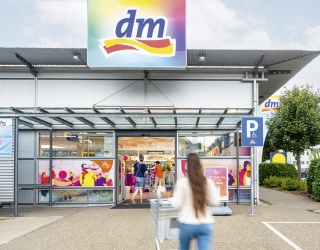
Neurologist Professor Christian E. Elger is the Scientific Director of Life & Brain GmbH in Bonn and an expert in the fields of neuromarketing and neuroeconomics. He explains for iXtenso what happens in the brain when we make a purchasing decision and how retail can utilize these processes.
Professor Elger, today you are an expert in the field of neuromarketing. What has sparked your interest in the connection between neurology and marketing?
Marketing provides stimuli that do not exist in a neurobiological examination like that, because they are very complex. Since these marketing stimuli are everyday stimuli, it was exciting for us to see what happens to them in the brain. This is how we discovered neuroeconomics, of which neuromarketing is a subcategory.
What exactly is neuromarketing?
In neuromarketing, we examine marketing processes by means of modern neurobiological methods, such as e.g. magnetic resonance imaging. We examine for instance how specific key visuals, those being symbols or stimuli connected with a specific brand, are processed in the brain. This is contrary to rational advertising messages, like those of health products for example. This has shown that the emotional area of the brain is activated by these key visuals in an unusually strong manner and with it vitally contributes to memory building.
Do you have an example for this?
Yes. The Dove commercials a few years ago for instance, where instead of the usual models, normal looking and real women were the faces and bodies in the advertisements. The advertising hype at the time resulted in the natural models outperforming the professional models in terms of likeability. However, magnetic resonance imaging revealed that even in women who said they preferred the natural looking models, the same areas were much more intensely activated when they saw the professional models versus the real-looking models.
We deduced from this that despite the short-term trend towards natural looking models, in the end an advertising message with magazine beauties is more successful. Dove also profited from the novelty effect in this case. The somewhat old-fashioned brand moved mainstream again and as we can see today, afterwards Dove returned to the classic model concept as soon as the hype had faded.
How did you come up with the idea to research the connection between neurology and marketing specifically in terms of marketing and product success in retail?
We simply have different possibilities than traditional marketing. We reveal something different than if you conduct an interview in classic marketing. Traditional methods lead to inaccurate answers, politically correct comments or statements that are made because the test persons believe that these are the right answers or because they want to portray a certain self-image towards the public.
We simply rarely reveal our inner self in questionnaires. Our surveys make a result possible that is not manipulated, because the test subjects do not know exactly what we are researching and the result can correspondingly not be directly affected. We get answers on a conscious and subconscious level.
How does the purchase decision work in the brain and how can it be outsmarted?
Through consideration and rebates. Before we buy a product, we rationally ponder whether we actually need something or not and whether we want to spend the money for it. The frontal lobes are involved in these rational decisions. However, if retail manages to activate our reward center, which is located in particular brain regions, the human being experiences a loss in rational decision-making. That is to say – and we definitely are all familiar with this – we buy something that we would otherwise not have bought at full price just because we are happy about the super deal we made.
So purchase decisions can be manipulated by targeted neuromarketing?
I believe so. The human brain has four areas that are important to marketing: attention, memory building, emotions and the reward system. These four areas can be specifically addressed with targeted marketing. If a product attracts great attention, it will be better remembered. And if you then manage to create a sense of reward, for instance through discounts, perceived value, an organic seal or a special face, we feel great about shopping to where we will repeat this activity or recommend it to others.
How can retailers use brain function to their advantage?
At this point in retail, for instance for car dealers, all of these sales are cutthroat. You can achieve a better result for the retailer with targeted neurobiological methods, for instance with “priming“, which is a subconscious imprint through indirect information. Let's say you want to buy a car. The retailer can try to influence your purchase through an indirect sales strategy. Let's assume he presents two car models to you. One of the car models is currently hard to come by and if it is available, it is only at a rebate of seven percent at most. The other car model on the other hand would be available immediately at a rebate of fifteen percent. The prospective buyer immediately thinks the more expensive model is worth more and his buyer readiness for the product increases.
Do you believe there is an “add to shopping cart“ function in the brain and that customers eventually can be subconsciously manipulated to buy that way?
There are a number of things with which you can address the reward system and through which customers become less critical. Emotions play an important role here. We don't want to haggle for the lowest possible price “at whatever it takes” with the friendly salesperson who offered us chocolate during a nice conversation. The archaic behavior patterns in human beings step in. We also want for our counterpart who was nice to us to like us, which is why we also buy his/her merchandise because of a certain social sense of duty.
What is also important in marketing is which emotions are associated with the brand, because the brand name changes our perception. Let's take the famous Coca Cola experiment. Without knowing which beverage they were drinking, test subjects tasted no difference between Coca Cola and Pepsi products or actually liked Pepsi even better. If the test subjects know the beverage brand, most of them prefer Coca Cola. Or let's take Apple products. They are not necessarily better than other brands, but they have a lifestyle image and by now are considered iconic. All this is a question of emotional imprinting and as long as the products are good, I don't see this as a problem.
Professor Elger, where do you see your discipline in ten or twenty years from now?
I believe that we will have a permanent place in marketing in the future. Today traditional marketing people are still a bit scared by us and feel threatened, but as it is known in expert circles: fifty percent of marketing is unnecessary – we just have to find out which half that is. Neuromarketing can help with this selection.
However, retail today should simply be more willing to experiment. I often have a full house with an enthusiastic audience during my lectures. Yet it rarely happens that someone approaches me afterwards and wants to test whether our findings actually also work in practice or rather in the retail market.
Elisabeth Henning, iXtenso.com

